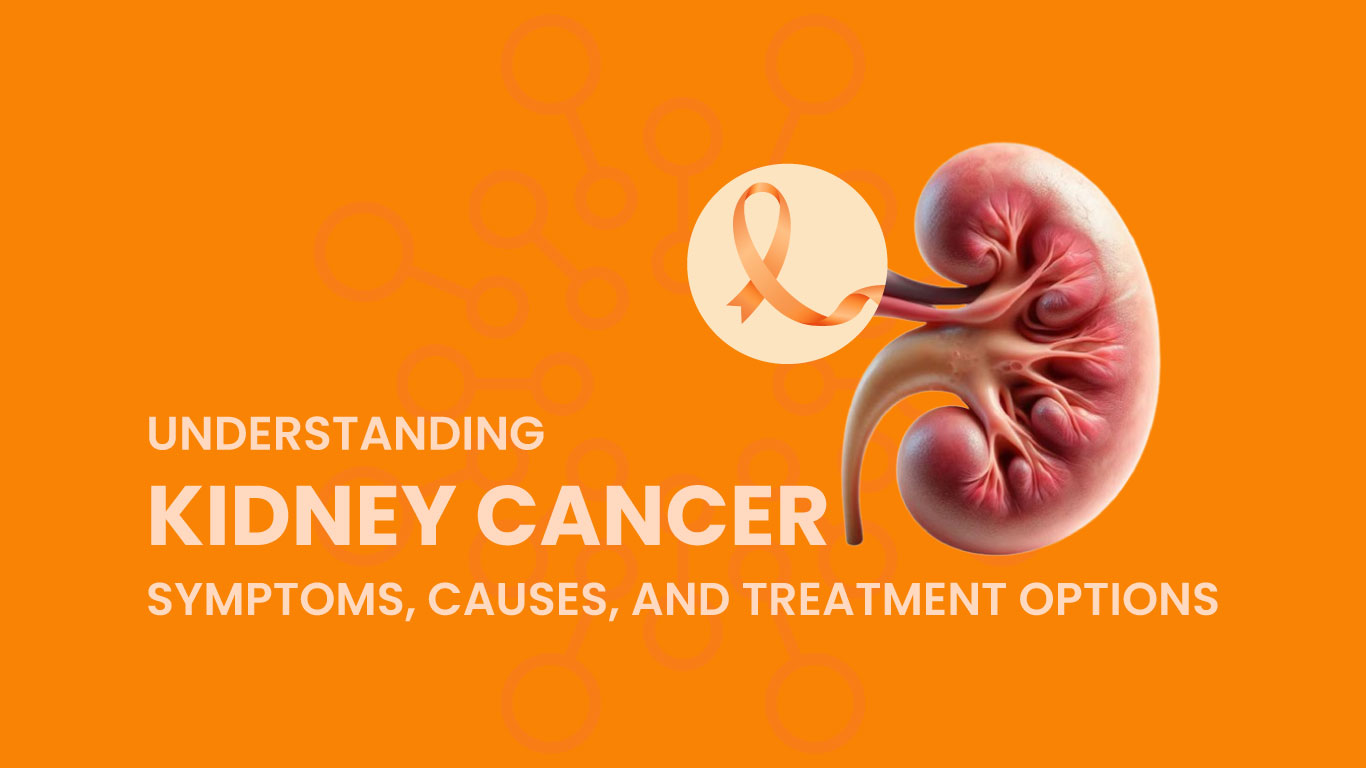Kidney cancer is a disease that begins in the kidneys, two bean-shaped organs located behind your abdominal organs, with one kidney on each side of your spine. It is one of the most common cancers in the world, with a significant number of new cases estimated each year.
Symptoms of Kidney Cancer
Kidney cancer usually doesn’t have signs or symptoms in its early stages. However, as the disease progresses, symptoms may develop, including:
- Blood in your urine, which may appear pink, red, or cola-colored.
- Pain in your back or side that doesn’t go away.
- Loss of appetite.
- Unexplained weight loss.
If you or someone you know is exhibiting symptoms of kidney cancer, seek medical attention immediately.
Causes and Risk Factors of Kidney Cancer
The exact cause of kidney cancer is unknown, but there are several risk factors. These include obesity, advanced age, consumption of tobacco in any form, hypertension, and certain disease conditions like Birt-Hogg-Dube syndrome. Long-term treatment of kidney disease using dialysis also increases the risk.
Latest Research and Updates
Recent research has shed light on the development and treatment of kidney cancer. For instance, a study by researchers at a leading medical center revealed an unexpected mechanism of drug resistance in kidney cancer. This discovery could lead to the development of more effective treatments.
On World Kidney Cancer Day, the focus was on the adverse effects of alcohol on the development of kidney cancer. This highlights the importance of lifestyle choices in preventing kidney cancer.
Treatment Options
Kidney cancer Treatment usually begins with surgery to remove the cancer. For cancers confined to the kidney, this may be the only treatment needed. If the cancer has spread beyond the kidney, additional treatments may be recommended.
Treatment options For Kidney Cancer include
- Surgery: This involves removing the entire kidney (radical nephrectomy) or just the tumor and a small margin of healthy tissue (partial nephrectomy).
- Targeted Therapy: These medications identify and control the abnormal multiplication of cancer cells.
- Immunotherapy: This is a biological therapy, which uses the immune system to fight against cancer.
- Radiation Therapy: This is used to kill the cancerous cells.
- Energy Ablative Techniques: These involve freezing or heating cancer cells to destroy them.
The best approach for you may depend on a number of factors, including your general health, the kind of kidney cancer you have, whether the cancer has spread, and your preferences for treatment.
Remember, early detection is key in the fight against kidney cancer. Regular check-ups and being aware of the symptoms can save lives. If you or a loved one are experiencing any of the symptoms mentioned above, please consult with a healthcare professional immediately.
Stay informed, stay healthy!


